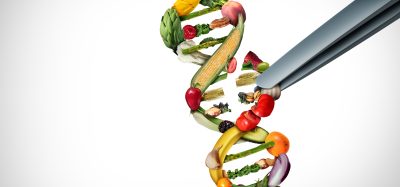Very low levels of bute found in Asda ‘Smart Price Corned Beef’
- Like
- Digg
- Del
- Tumblr
- VKontakte
- Buffer
- Love This
- Odnoklassniki
- Meneame
- Blogger
- Amazon
- Yahoo Mail
- Gmail
- AOL
- Newsvine
- HackerNews
- Evernote
- MySpace
- Mail.ru
- Viadeo
- Line
- Comments
- Yummly
- SMS
- Viber
- Telegram
- Subscribe
- Skype
- Facebook Messenger
- Kakao
- LiveJournal
- Yammer
- Edgar
- Fintel
- Mix
- Instapaper
- Copy Link
Posted: 9 April 2013 | FSA | No comments yet
The FSA has been informed by Asda that very low levels of bute, have been found in 340g tins of its Smart Price Corned Beef…


The Food Standards Agency has been informed by Asda that very low levels of the veterinary medicine phenylbutazone, known as bute, have been found in 340g tins of its Smart Price Corned Beef.
Asda is recalling this product and anyone who has Asda Smart Price Corned Beef should not eat it, but return it to the nearest Asda store for a full refund.
Animals treated with bute should not enter the food chain as the drug may pose a risk to human health; however, even if people have eaten products which contain contaminated horse meat, the risk of damage to health is very low.
This product was tested by Asda as part of the industry testing programme and found to be positive for horse DNA above 1%. It was withdrawn from Asda’s shelves on 8 March 2013. As with all products that have tested positive for horse DNA over 1% it was tested for bute, as required by the FSA. This product has been found to contain very low levels of bute (four parts per billion – 4ppb) and is the only meat product where bute has been found.
However, bute has previously been found in horse carcasses. The level of bute found in this product is considerably lower than the highest levels found in carcasses (the highest level found was 1900ppb).
Chief Medical Officer Professor Dame Sally Davies previously said: ‘Horse meat containing phenylbutazone presents a very low risk to human health.
‘Phenylbutazone, known as bute, is a commonly used medicine in horses. It is also prescribed to some patients who are suffering from a severe form of arthritis. The levels of bute that have previously been found in horse carcasses mean that a person would have to eat 500 – 600 one hundred per cent horsemeat burgers a day to get close to consuming a human’s daily dose. And it passes through the system fairly quickly, so it is unlikely to build up in our bodies.
‘In patients who have been taking phenylbutazone as a medicine there can be serious side effects but these are rare. It is extremely unlikely that anyone who has eaten horse meat containing bute will experience one of these side effects.’
Since the horse meat investigation began in January 2013, this is the first product that has tested positive for bute. Further information about products that have tested positive for horse DNA above 1% and have been tested for bute can be found on the consumer advice page, which can be accessed via the link on the right.
In the UK horse carcasses must have a negative bute test before they are allowed to enter the food chain.
The FSA is continuing to investigate this issue.
Related Items
Asda ‘Smart Price’ Corned Beef recalled due to bute






